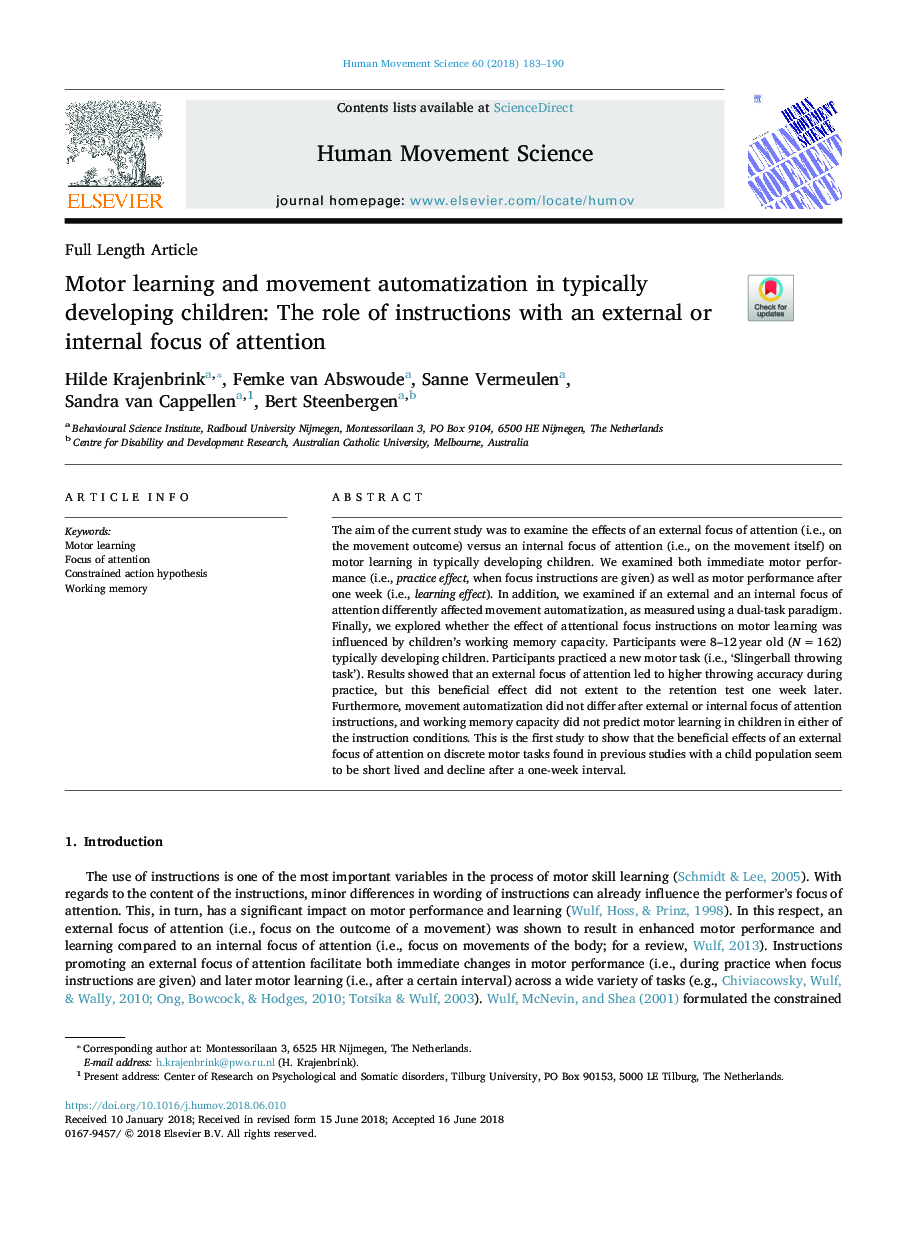| Article ID | Journal | Published Year | Pages | File Type |
|---|---|---|---|---|
| 7290885 | Human Movement Science | 2018 | 8 Pages |
Abstract
The aim of the current study was to examine the effects of an external focus of attention (i.e., on the movement outcome) versus an internal focus of attention (i.e., on the movement itself) on motor learning in typically developing children. We examined both immediate motor performance (i.e., practice effect, when focus instructions are given) as well as motor performance after one week (i.e., learning effect). In addition, we examined if an external and an internal focus of attention differently affected movement automatization, as measured using a dual-task paradigm. Finally, we explored whether the effect of attentional focus instructions on motor learning was influenced by children's working memory capacity. Participants were 8-12â¯year old (Nâ¯=â¯162) typically developing children. Participants practiced a new motor task (i.e., 'Slingerball throwing task'). Results showed that an external focus of attention led to higher throwing accuracy during practice, but this beneficial effect did not extent to the retention test one week later. Furthermore, movement automatization did not differ after external or internal focus of attention instructions, and working memory capacity did not predict motor learning in children in either of the instruction conditions. This is the first study to show that the beneficial effects of an external focus of attention on discrete motor tasks found in previous studies with a child population seem to be short lived and decline after a one-week interval.
Related Topics
Life Sciences
Neuroscience
Cognitive Neuroscience
Authors
Hilde Krajenbrink, Femke van Abswoude, Sanne Vermeulen, Sandra van Cappellen, Bert Steenbergen,
